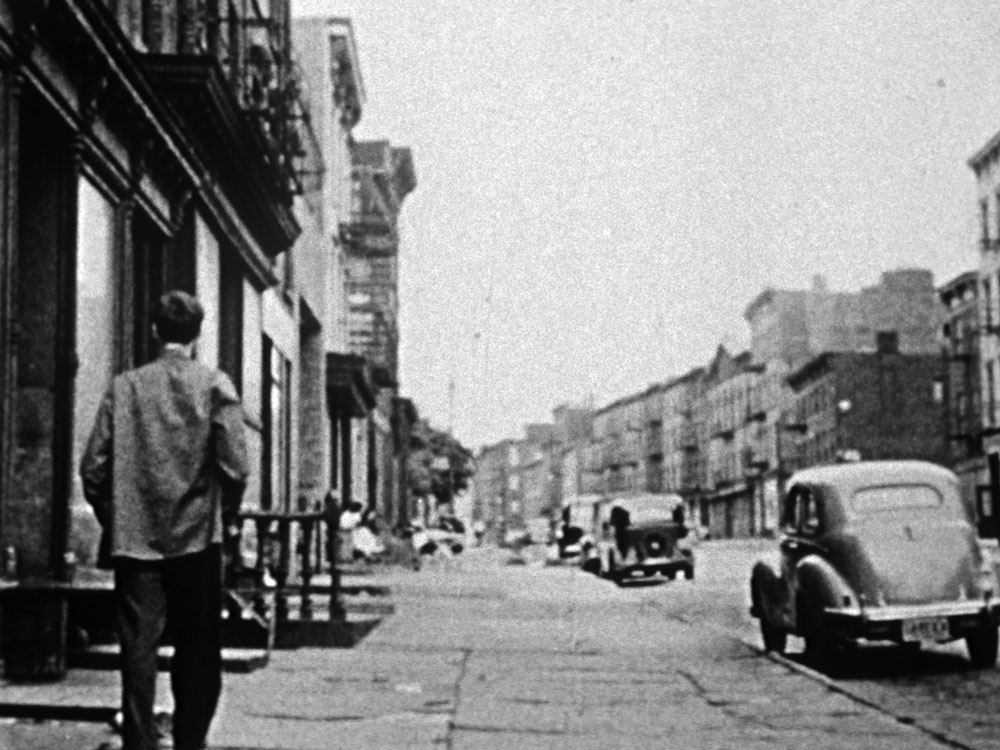As freeing, reflective, instinctual, and transfiguring as diary filmmaking can be, Jonas Mekas repeatedly admits to the isolation and displacement inherent to a form that requires confronting a personal history. In Williamsburg, Brooklyn (2003), Mekas works with footage he collected in 1950 with his first Bolex camera, shortly after his arrival in the United States, and in 1972, when he revisited the neighborhoods he once lived in. As in his other diary films, scenes of the streets—of its architecture, skyline, children, shopkeepers, family gatherings—stream together a fragmented memory. Over a silent track, title cards lyrically intersperse brief bits of diaristic information and the cameraperson sustains a mysterious intimacy with his surroundings. In Williamsburg, Brooklyn, the apparatus of the camera is evidently felt, as remarkable as you make it to be, of Mekas’s first handheld experimentations with movement, framing, duration, and subject.
Bridging two periods of Williamsburg, 20 years apart and now largely unrecognizable, Mekas’s autobiographical filmmaking often reflects the changing landscape concerning the Brooklyn neighborhood’s immigrant population. The Williamsburg he arrived at in late 1949 was a home to thousands of European refugees (many from his own country of Lithuania), and inhabited predominantly as well by Puerto Rican, Dominican, Polish, and Ukrainian immigrants. In the film we see the colorful faces of various cultures present at the time—Mekas once wrote that Williamsburg was a “miserable home but home. […] And I was free! I was free and I had just acquired my first Bolex camera.” This early footage of observational and impressionistic moments denotes the anthropological sensibilities that lasted throughout his directorial career. Edited and completed a little over 50 years after it was shot, his return to a personal archive as material and meaning became a particular vision of introspection.
Reviewing and revisiting early works is central to the recently formed Cinéclub at Bar Laika in Clinton Hill, where Mekas’s film will play tomorrow. Every other Monday at 9 p.m., a projector screen descends from the ceiling and transforms the e-flux satellite bar into an impromptu screening room. The free program showcases debut or very early short films by notable directors from the 20th and 21st centuries, with the intention of fostering exchanges about cinema, its history, where filmmakers begin, and how they resonate today.
Williamsburg, Brooklyn screens tomorrow night, Monday, November 11, at CinéClub at Bar Laika. Sebastian Mekas will be in attendance to introduce the film.


